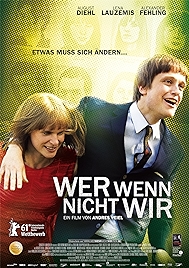A movie for every day of the year – a good one
5 September
Kidnapping of Hanns-Martin Schleyer, 1977
On this day in 1977, the West German businessman Hanns-Martin Schleyer – a former SS officer who had risen to post-war prominence in the country’s employers organisation – was kidnapped in Cologne by the militant urban guerrilla group Red Army Faction, also known as the Baader-Meinhof gang, as part of what became know as the German Autumn.
His kidnappers were hoping to use him, at least partly, as collateral to force the government to release jailed members of their gang, including prominent faces Andreas Baader and Gudrun Ensslin.
While the gang moved Schleyer around, from Germany to the Netherlands and then to Brussels, the government played for time and refused to give ground.
Finally, 43 days later, after Baader, Ensslin and fellow RAF member Jan-Carl Raspe had been found shot dead in their high-security prison – a “collective suicide”, though Baader appears magically to have shot himself through the base of the neck, the bullet emerging through his forehead – Schleyer was assassinated by his kidnappers, tit for tat.
If Not Us, Who? (2011, dir: Andres Veiel)
An attempt to put the Red Army Faction into some cultural/historical context, focusing on the political awakening and increasing activism of Gudrun Ennslin (Lena Lauzemis), a young woman coming of age in the 1960s and of the opinion that fascism hadn’t been defeated by the fall of Hitler, in fact it was on its way back, thanks to the machinations of the West German state (and the rehabilitation of people like Hanns-Martin Schleyer).
The strongest feature of Andres Veiel’s film is that it asks us to imagine a country which was not only dealing with the youthquake sweeping the western world, but doing it in a situation where the older generation had little moral authority, thanks to the Nazi taint, where chickens bred by “not mentioning the war” were finally coming home to roost.
Let’s make no bones about it, this film is dry, it’s political, it’s earnest. But it also catches the headiness and optimism of the period and is astute in its analysis of the situation and its conclusions – that political edifices built on shaky foundations can become almost the exact opposite of what they set out to be.
Why Watch?
- A subject ripe for frothing exploitation given a cool-headed treatment
- A West German counterpoint to the East German-focused The Lives of Others
- Lauzemis makes a for a very believable Gudrun Ennslin
- No one gets an easy ride
I am an Amazon affliate
© Steve Morrissey 2013

